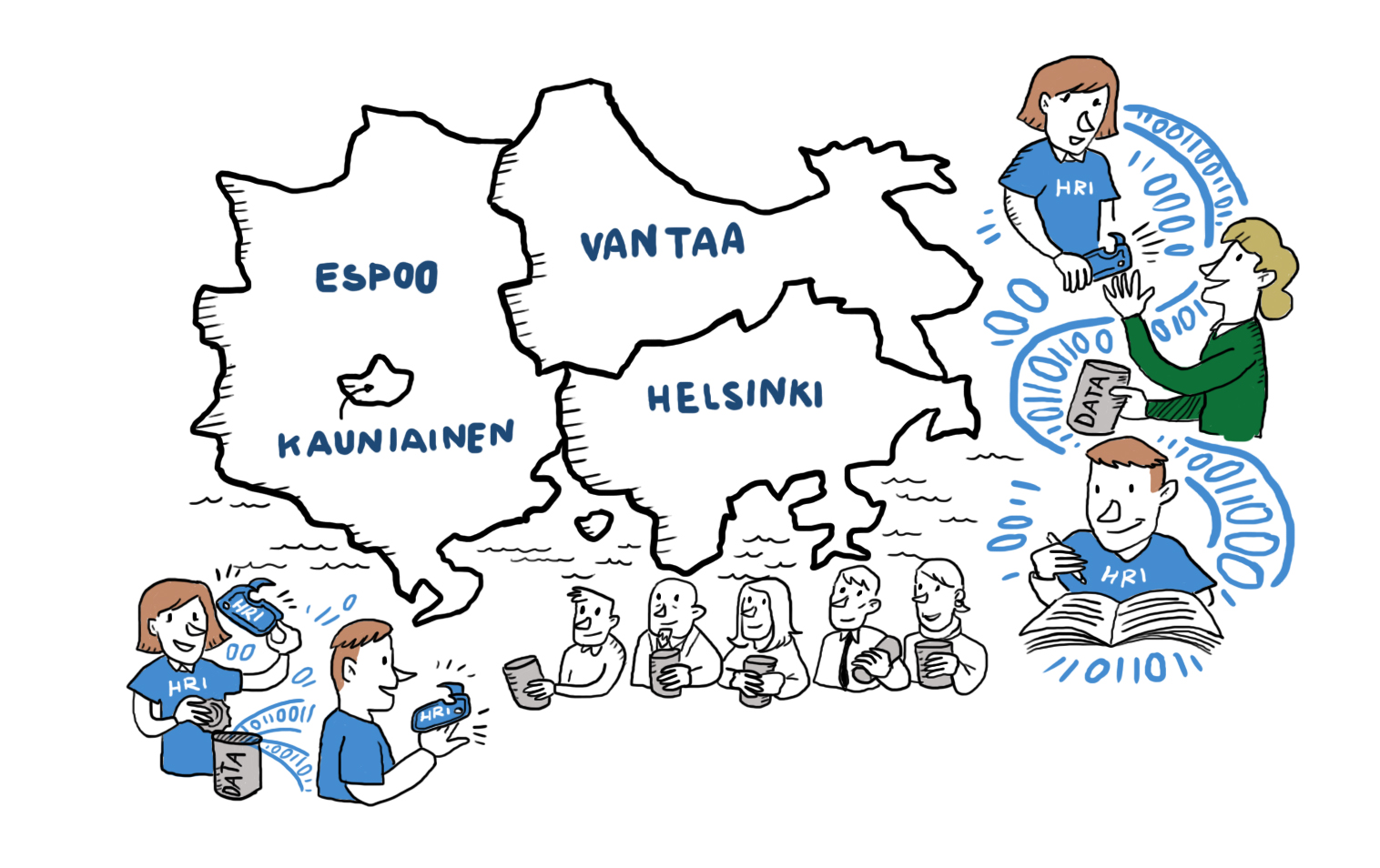Open data ecosystem
The opening up of public data as open data is an international phenomenon that has spread rapidly around the world. It started in the United States and the United Kingdom. In many countries, public administrations may be required to open up their data, at least to some extent, but often the motivation behind opening up data is the organisation’s desire to increase openness and transparency and to promote research, innovation and business. Multi-stakeholder data sharing and exploitation can be seen as an ecosystem activity.
Open data around the world
There are nowadays hundreds of open data portals around the world, where public and non-public bodies share their public data as open data for re-use. Data portals exist at country, regional, municipal, organisational and thematic levels. Information on data portals can be found, for example, in the list of Open Data Portals of the world maintained by Open Knowledge International.
Open Knowledge International is an open network that promotes the opening up and use of data around the world. Among other things, the network has created a metadata catalogue for sharing open data called CKAN (The Comprehensive Knowledge Archive Network). CKAN is open source, and the HRI data catalogue, for example, is implemented on the CKAN platform.
In Europe, the opening up of public data has long been promoted by various EU laws such as the Public Sector Information (PSI) Directive. The European Commission’s 2020 European Data Strategy aims to put the EU at the forefront of a data-driven society. The internal market for data should enable the free movement of data within the EU and between sectors, benefiting businesses, researchers and public administrations. A key EU law is the Open Data Directive (EU) 2019/1024, which aims to promote the re-use of public sector data for commercial and non-commercial purposes.
For Europe, the key open data portal is the European Commission’s open data portal, the European Data Portal, which brings together metadata on data opened in EU countries. The metadata of data opened in Finland are automatically copied there via the national avoindata.fi, where the metadata of data opened in the HRI is copied automatically every day. The European Commission’s Open Data Portal also conducts an annual Open Data Maturity benchmarking report, which examines the development of open data policies in European countries, the effectiveness of data re-use and its monitoring, national open data portals and the quality of open data.
The European Data Strategy includes several data laws that introduce a new form of data sharing alongside open data by promoting the sharing of public data and mydata protected by contracts or other means, subject to certain conditions and restrictions. At the same time, data interoperability will be promoted, for example by creating data spaces around key thematic areas (e.g. transport data).

Open data in Finland
National level
In Finland, there is no obligation to open data in general legislation, but specific legislation has defined certain obligations to open data based on EU regulations. These obligations concern the opening of environmental spatial information, forestry and traffic data.
In 2014, Finland launched a national open data portal, avoindata.fi. The service is a centralised data catalogue maintained by Digital and Population Data Services Agency, which brings together descriptive information on open data published in Finland at a single point. The metadata of data published on the HRI service are automatically copied to avoindata.fi every night.
In recent years, some data ecosystems have emerged where data are shared and used as openly as possible, but also in a partially closed way. A good example of this is the Traffic Data Ecosystem, coordinated by Fintraffic.

Local level
In the Helsinki Metropolitan Area, the cities (Helsinki, Espoo, Vantaa and Kauniainen) and their municipal associations (such as HSY and HSL) have been publishing their open data on Helsinki Region Infoshare since 2011. The opening of the data and the HRI service is based on decisions made by the cities and a joint agreement. The HRI service has long been part of the core business of the cities in the Helsinki Metropolitan Area. HRI was the first open data service launched in Finland. The Helsinki Metropolitan Area has been a pioneer in opening up public data from the very beginning, and the HRI service has served as a model for many data opening projects in Finland and elsewhere.
In 2014-2017, six of Finland’s largest cities (Helsinki, Espoo, Vantaa, Tampere, Turku and Oulu) implemented the 6Aika Open Data and Interfaces project. The 6Aika strategy aimed to strengthen Finland’s competitiveness and public sector productivity, develop new service innovations and promote business and employment. The project aimed to create operating models to open data, open harmonised APIs and promote the use of open data in business. As a result of this work, cooperation between cities and between cities and businesses increased significantly and, since the end of the project, data opening has continued to be part of the cities’ core business. For example, the City of Tampere started sharing its open data through the City of Tampere Data Portal and the City of Oulu through the City of Oulu Data Portal.
Many other municipalities and other public bodies have started to open their public data as open data. The most significant data openings have included municipal purchasing data.
Open data communities
As part of the international Open Knowledge network, Finland has a registered non-profit association called Open Knowledge Finland ry (OKFI). Founded in 2012, the non-profit association promotes the opening and exploitation of knowledge in Finland.
The {API:Suomi} Facebook group discusses about open data, interfaces, API-oriented information system design and business (API Economy), standards and other related topics. Discussions or events are mainly in Finnish.
The Finnish Open Data Ecosystem Facebook group is an active network of people interested in open data. Discussions or events are mainly in Finnish.

Leave a Reply